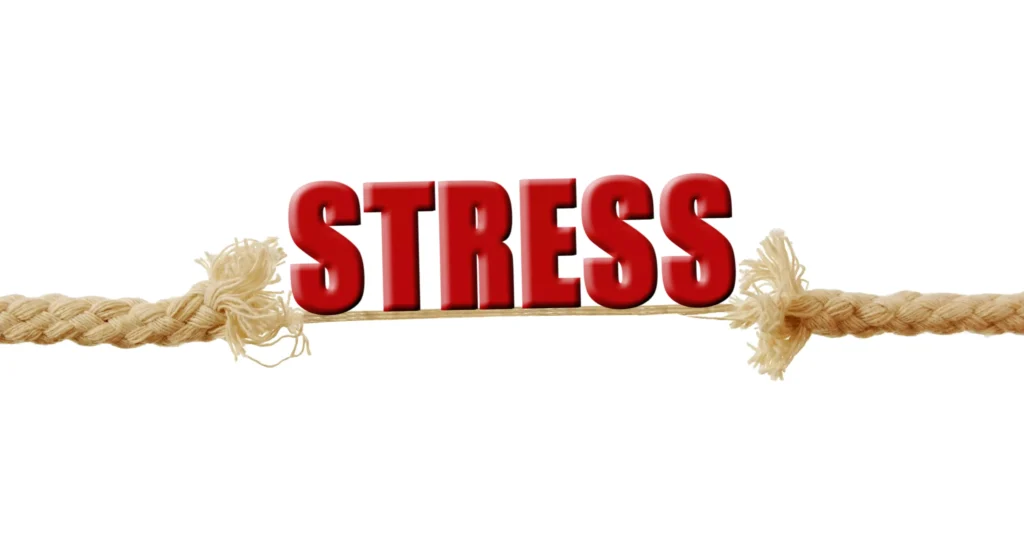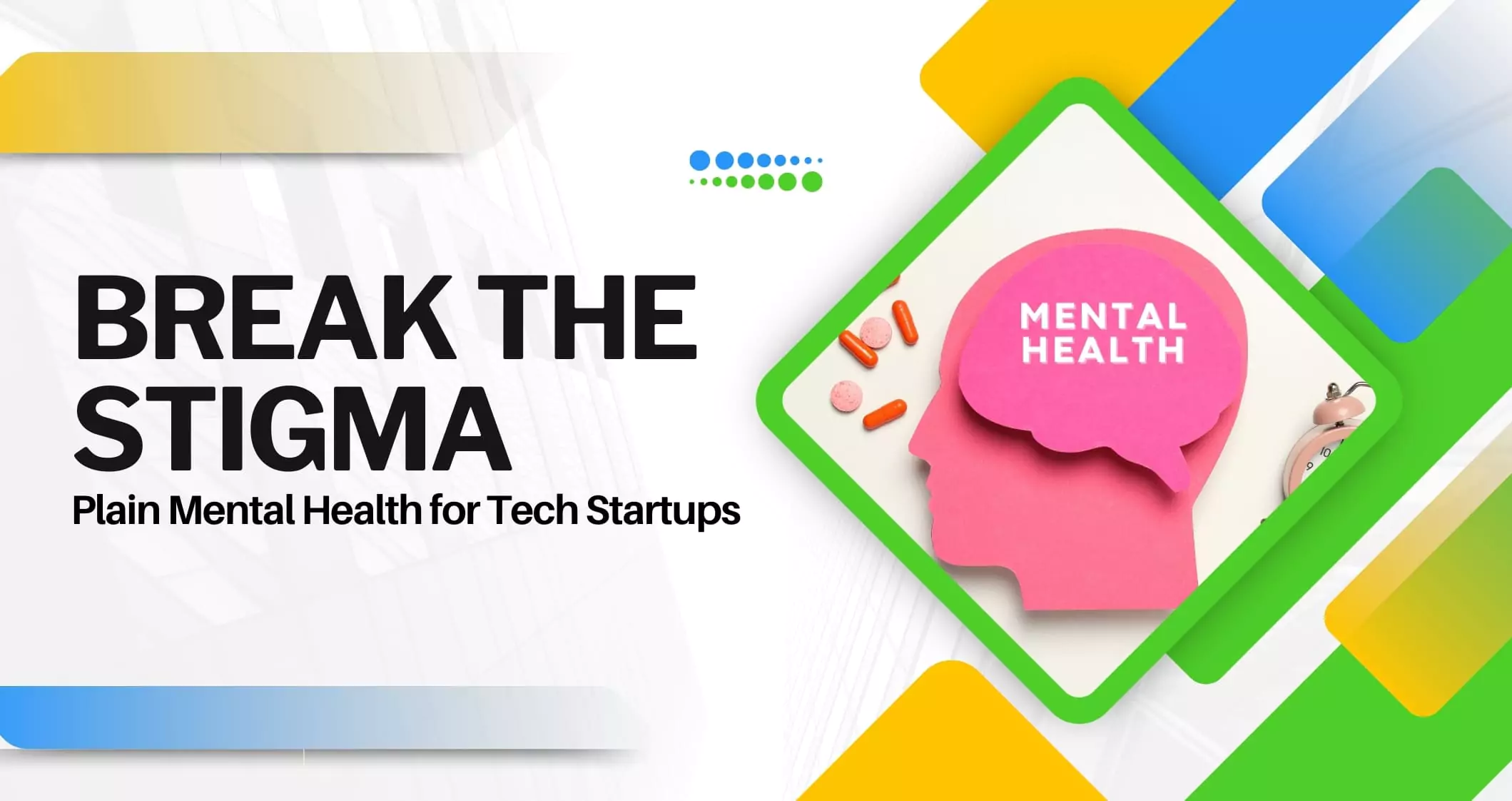You’re a tech startup owner, and as such, you’re no stranger to the grind. You dedicate your entire day to developing fresh approaches for building, resolving issues and progressing your business. The exhilaration of building your enterprise can be energizing, yet it exhausts your mental capacity. The combination of pressure to achieve success, along with deadline obligations and countless responsibilities, creates overwhelming stress. Unfortunately, mental illnesses tend to be swept under the rug in today’s hectic society of technology. This blog promises to shake you out of such a stigma and show you that it is equally relevant to pay attention to your mind as it does to your business vision.
Why Mental Health Matters for Tech Entrepreneurs

Tech entrepreneurship is challenging. The typical tech entrepreneur handles numerous projects and team management duties while maintaining a competitive position. The various pressures make it easy to neglect your personal care. Mental health conditions, including burnout, stress and anxiety, can go unnoticed to affect both your professional work and personal relationships and physical health.
Achievement can come with a top-of-the-mind realization that a person’s mental health is the foundation of his business. The mentally healthy individual is more alert, has plenty of ideas, and recovers better from any issue. Not only is proper care for your mental health a preventive measure for burnout, but also for establishing a sustainable and meaningful career.
The Impact of Stress on Your Mind and Body

As an entrepreneur in technology, you are no stranger to stress. Despite meeting deadlines, for example, or living under financial stress, it always seems like innovation is on the line. But not only does long-term stress affect your mood, but it also affects your body. Physical symptoms of long-term stress include exhaustion, migraines, and muscle tightness. Even more, long-term stress can compromise your immune system, therefore raising your risk of sickness.
One cannot ignore how mental and physical health are interrelated. Mental stress usually shows itself physically as well. You should be vigilant about these signs at an early stage and take measures to prevent them for your mental and physical well-being.
Managing Stress with Mindfulness and Self-Care

Mindfulness and self-care are two simple tools that can prevent stress and enhance your mental well-being. It is all about giving yourself time and doing things that cause you to feel calm and centred.
These are some little routines to embrace in your everyday life:
Mindfulness
Live in the present for a few minutes every day via meditation, deep breathing, or walking in the sun. Remaining in the present might help bring down stress and anxiety.
Regularly Exercise
The best tension reducer, exercise generates endorphins that elevate your mood. Daily activities toward getting fit could include a pre breakfast run, yoga, or a trip to the gym.
Pause
Although it is easy to become under the grind, regular pauses will preserve your mental health. Leave your workstation, stretch or do something you enjoy for a few minutes to restart your mind.
Have a wholesome diet
Your mental and physical well-being are directly affected by your diet. Consuming lots of lean protein, veggies, and fruits will help you stay attentive and focused.
Have Enough Sleep
Good mental acuity and general well-being depend on sleep. Develop a bedtime routine and a calming pre-sleep routine to help you sleep.
Encircle yourself with positivity
Your mental health depends heavily on the group of people you spend time with. You should put your well-being first when choosing people from family, friends, and coworkers who boost your self-esteem.
Overcoming Setbacks and Developing Resilience
Setbacks in entrepreneurship are inevitable. It may be a product flop, a poor-performing financial quarter, or a sudden personal setback. Dealing with setbacks is emotionally draining, though. But this fact: setbacks don’t define you. They’re growth lessons.
People who want to overcome difficult times need resilience as their main tool. Learning to handle challenges leads to personal growth, so resilience becomes more than simply avoiding difficult situations.
To develop resilience, you should follow these steps during challenging times:
Accept Your Feelings
Stress and frustration, together with disappointment, are typical responses to difficult situations. Acceptance of your emotions represents the initial requirement for healing. Healthy outlets such as sharing with friends, journaling or professional help should be used to express and release these feelings.
Seek Help
The process does not need to be handled alone. Seek advice from trusted friends, mentors or counsellors who will offer guidance while providing support. A single person who listens to you can transform your entire perspective.
Learn from Setbacks
Treat your mistakes as chances to learn instead of wasting time on them. How do you approach the following situation differently? How do you improve? Open yourself to the potential for improvement and use it to fuel your next step.
Practice Self-Compassion
Be gentle with yourself. Understand that making mistakes is something that happens to everyone, and it does not make you incapable or successful anymore. Treat yourself the same as you would do for a struggling friend.
Developing Healthy Coping Habits and Prioritizing Mental Wellness

Healthy grooming habits are the foundation of sound mental health. You plan business meetings and product design, and you must fit in relaxation and self-care time. Mental health is not an issue you resolve in one sitting—it’s a long-term commitment.
Here are a few suggestions to make mental health a priority in your daily habits:
Develop a Routine
Having a schedule in your life with time for work, exercise, sleep, and socializing can minimize stress and improve your overall well-being.
Set Boundaries
With the convenience of blurring business and personal life as an entrepreneur, establish boundaries to avoid overworking. Learn to say no when you need time to yourself.
Practice Gratitude
It is only a matter of seconds to sit and reflect on what you are grateful for, but the second can shift your attention from stress to optimism. It will also make you more grateful for the little victories, big or small.
Take Time Off
You don’t have to feel guilty for taking a day off or going on vacation. Getting time off work means that you get to recharge and come back to your business with fresh eyes.
Shattering the Stigma: Mental Health in Tech

Even in the digital world, mental health is stigmatized. Many entrepreneurs are pressured to always be “on” and battle alone, fearing that being open would render them weak or incapable. But actually, what truly is the case is that mental conditions like burnout, anxiety, and depression affect many entrepreneurs—and that seeking help is actually a sign of strength, not weakness.
There are some alarming statistics that have been revealed by recent surveys about mental health within the startup world. To cite an example, a Hubspot survey found that 63% of entrepreneurs suffered from burnout, and 59% of entrepreneurs suffered from anxiety. In spite of these statistics, there are still many who feel that there is a stigma when it comes to mental health, and it is only discussed by a small percentage of entrepreneurs.
To break this stigma, open communication is needed. An environment that supports seeking help develops when people discuss mental health openly and honestly. Team leaders should both provide mental health information and support to their employees while creating a work environment that prioritizes their health.
Summary
Tech entrepreneurs often lose sight of their mental health because they become deeply absorbed by the excitement of their work. Your long-term success depends on proper well-being maintenance. Your career success depends on stress management and presence and resilience development, which leads to better mental wellness.
Getting assistance and spending time on self-care activities should not be considered negative behaviour. Putting your mental health first shows strength because it leads you toward becoming an improved and more effective leader. Take a breath because self-care matters, and you should break the stigma. Your business and your mental health will thank you.



